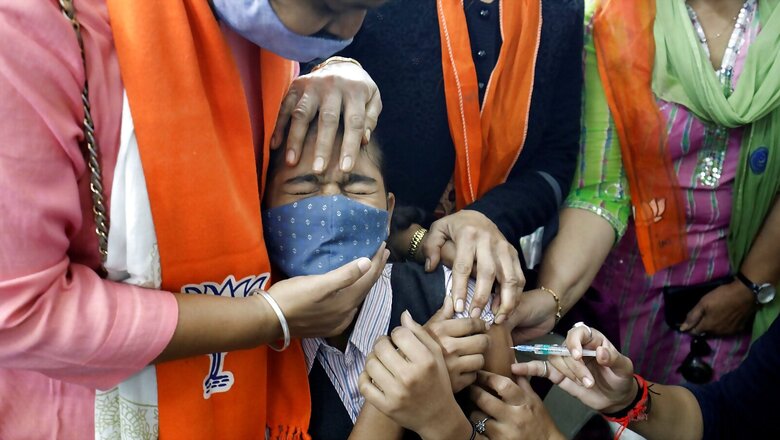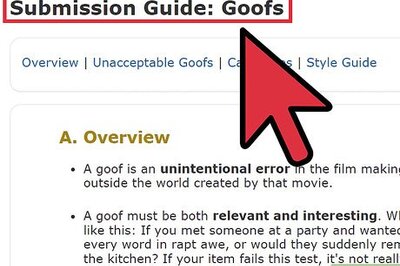
views
On April 2, the World Health Organization (WHO) suspended the supply of Bharat Biotech’s Covaxin through the UN agencies after finding issues with the “good manufacturing practices”.
The WHO did not elaborate on the reasons.
For the past 15 days, not only health journalists, but even commoners who got Covaxin jabs are hoping to hear from the country’s drug regulatory agency – Central Drugs Standard Control Organization (CDSCO).
I have faced several questions from family members, friends and acquaintances who are anxious to know more about what went wrong with Covaxin and what kind of lapses have been found.
A close relative, who just turned 62, recently asked me why WHO suspended Covaxin and if he will also face some side-effects…
I clarified that WHO has said “the data … indicates the vaccine is effective” and that “no safety concerns exist”.
I calmed his questioning mind. But he is just one of those (more than 28 crore) individuals who have been administered Covaxin. Even children have been administered the same vaccine.
The questions and anxiety around such issues are obvious. Instead of playing a mute spectator to the affair, the agency should have stated facts, apart from ensuring it will keep citizens updated with further investigation on the issue.
The intent is not to blame the regulator for the alleged lapses, but to make the regulator aware that common man expects the agency to be more responsive. The apex health regulating agency of India, CDSCO, certainly, owes an explanation.
Here are a few recent controversial decisions where the regulator’s uncanny quiet has caused more harm than good.
CLEARING CONTROVERSIAL MOLNUPIRAVIR
Starting with the latest, 2022 began with a controversy over Molnupiravir, the first oral anti-Covid drug.
“The drug has major safety concerns,” said Dr Balram Bhargava, the head of the Indian Council of Medical Research (ICMR), on January 5. The pill was approved for emergency use in the country by the Drugs Controller General of India (DCGI) – the head of the CDSCO – in the last week of December.
The CDSCO, in fact, had granted permission to 13 Indian pharmaceutical companies.
In a weekly press briefing, the ICMR chief said the drug can cause teratogenicity and mutagenicity. Teratogenicity means the capability of a medicine to cause fetal abnormalities or disturb the formation of a fetus or an embryo when taken by pregnant women, consciously or unconsciously. Mutagenicity means causing permanent changes in the genetic material.
Hence, the drug was not included in the national treatment protocol for Covid-19.
The concerns highlighted by the ICMR were significant.
However, the CDSCO never responded or clarified its stand.
The drug ended up dividing the medical fraternity over its use. Worse, despite safety concerns, it registered sales of around 1.2 crore pills worth Rs 50 crore within the first month of its launch.
DODGY APPROVALS TO ITOLIZUMAB, 2DG
In July 2020, Itolizumab – a monoclonal antibody originally developed by Biocon – was granted emergency approval to treat patients with moderate to severe Covid-19 disease.
The drug immediately became controversial because of the lack of strong data.
The drug’s phase-2 trial study was conducted on just 30 participants and the data was inconclusive.
For inexplicable reasons, the CDSCO waived the phase-3 trial for the drug. It instead asked the company to conduct a post-approval phase-4 study while granting it an emergency use approval.
Eventually, the drug failed to make it to the list of medicines allowed on national level to treat Covid-19 – national treatment protocol.
The ICMR, which revises the national treatment protocol, announced that the clinical trials have not yet demonstrated that the drug can reduce mortality.
While Bengaluru-based Biocon, a reputable drugmaker known for several top-class medications, ended up facing flak, the CDSCO remained silent on the matter.
“The silence, at times, shows you were not convinced with your own actions. Hence, when someone else points it out, you give up… you have nothing to say,” a senior official at a Mumbai-based pharmaceutical firm told me. His company’s drug, which eventually became popular in the treatment of Covid-19, also went through a controversy for a brief period.
“Instead, the CDSCO should come up with its own strong reasons and data to back its approvals… but it always makes a mockery of itself and the associated pharma companies. The regulator looks weak and pharma companies foolish.”
UNUSUAL APPROVAL TO NATCO’S BARICITINIB
Last year, in May, Hyderabad-based Natco Pharma had approached the Supreme Court. The company wanted to produce the generic version of Baricitinib – a patent protected drug originally developed by an American drugmaker Eli Lilly. The drug showed potential to treat Covid-19 in certain trials and hence Natco wanted to grab the opportunity.
The company sought a directive to the CDSCO to quickly dispose of its applications for Emergency Use Authorisation (EUA) and clinical trial waiver.
And even before the court looked into the case, Natco was granted emergency approval by the CDSCO. It launched the product at the pre-decided price without waiting for the compulsory licence by Eli Lilly.
While Natco’s and CDSCO’s actions were eligible to attract a legal challenge from the patent owner under the infringement of intellectual property rights (IPR) laws, Eli Lilly buckled under the pressure and granted the voluntary licence to Natco.
The question is – Why did the CDSCO decide to bypass the protocol? Maybe, such actions are valid in an emergency induced by a pandemic.
Then, why were other pharma companies not given the similar licence to manufacture Remdesivir, another patented product which was much more in demand for the treatment of Covid-19 in India than Baricitinib?
India has witnessed one of the worst crises due to shortage of Remdesivir amid the rampaging second wave.
Here, I am not getting into the details of whether Remdesivir works or not.
But why were the rules changed and if it was possible, then why not for other patented, life-saving products?
APPROVALS DESPITE LACK OF DATA
In several other cases, such as the Defense Research and Development Organisation (DRDO) and Dr Reddy’s Laboratories’ drug 2-deoxy-d-glucose, the CDSCO gave nod in May 2021. The drug, which was extraordinarily hyped, was approved despite the absence of any published data.
The drug, going ahead, failed to make it to the national treatment protocol.
There are many other products where approvals were rushed, apparently, on the basis of incomplete data.
Scientifically strong products from top-notch vaccine makers such as Bharat Biotech’s Covaxin and Biological E’s Corbevax became the centre of controversy because the approvals were given in the absence of strong data.
Releasing the available data or the premise for granting approval will lead to creation of trust – both, towards the medicinal products and the regulator.
Dear regulator, decisions that create a furore are not always bad, but your eerie silence makes them look completely botched up.
Read all the Latest News India and Breaking News here

















Comments
0 comment